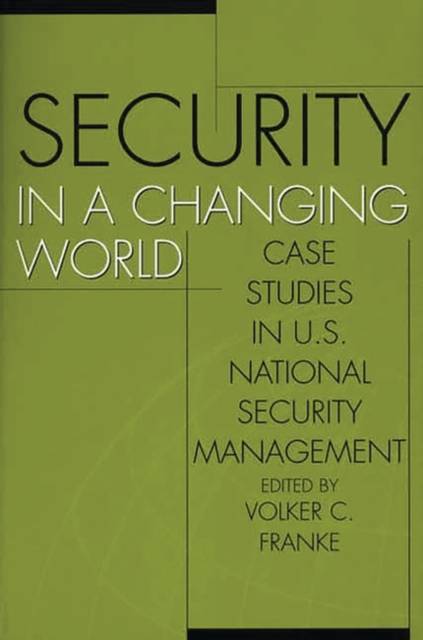
- Retrait gratuit dans votre magasin Club
- 7.000.000 titres dans notre catalogue
- Payer en toute sécurité
- Toujours un magasin près de chez vous
- Retrait gratuit dans votre magasin Club
- 7.000.0000 titres dans notre catalogue
- Payer en toute sécurité
- Toujours un magasin près de chez vous
Description
The end of the Cold War has brought about significant changes in the political, economic, social, and cultural structure of the international system. Absent a distinct enemy and the threat of global thermonuclear war, the United States today faces a host of new security challenges that require policymakers to make difficult decisions with significant domestic and international implications. The range of conflicting goals, expectations, and capabilities demands fresh solutions to international conflicts and civil unrest, new strategies for conducting peace support operations, and the preparation of America's forces for completing operational assignments under increasingly uncertain conditions.
The case studies and exercises constructed for this book examine some of the most pertinent management, leadership, and accountability issues related to U.S. national security. Each case places readers at the center of difficult decisions, illustrates more general policy dilemmas, and is designed to stimulate discussion of those issues beyond the classroom. Cases highlight dilemmas at two levels: pertaining specifically to the case and pertaining to its larger policy implications. The absence of a one-sided argument, specific policy recommendations, or logical conclusions, enables readers to recognize the importance of the issues at hand and their greater policy implications and to discern lessons that might apply more generally to public policy, administration, and management. Particularly useful in courses dealing with national security, international relations, public/policy administration, civil-military relations, and organizational management. An instructor's manual is available upon request.Spécifications
Parties prenantes
- Auteur(s) :
- Editeur:
Contenu
- Nombre de pages :
- 216
- Langue:
- Anglais
- Collection :
Caractéristiques
- EAN:
- 9780275972790
- Date de parution :
- 30-03-02
- Format:
- Livre relié
- Format numérique:
- Genaaid
- Dimensions :
- 158 mm x 245 mm
- Poids :
- 462 g

Les avis
Nous publions uniquement les avis qui respectent les conditions requises. Consultez nos conditions pour les avis.






